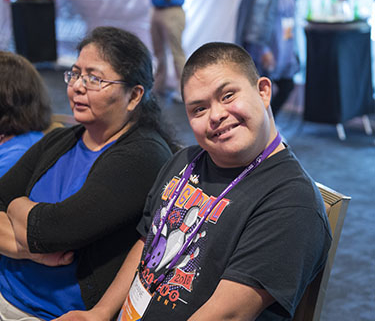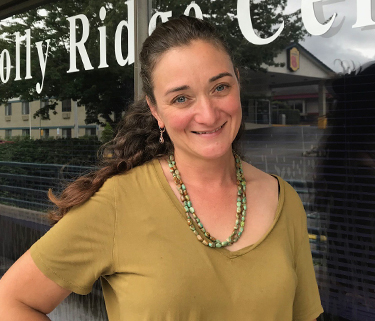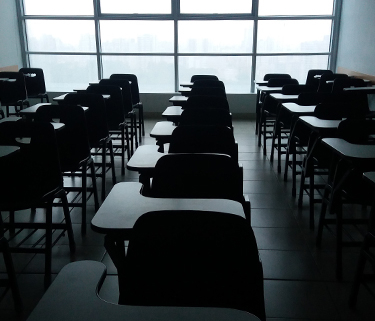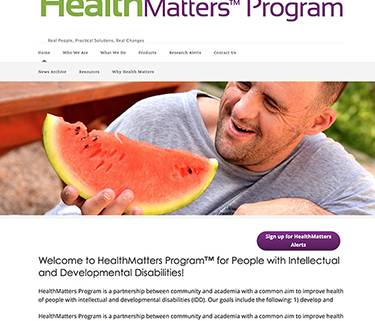Our Mission & Values
/in History Post Slider/by The ArcOur Position Statements
/in History Post Slider/by The ArcPerseverance in Planning: The Value of Building an Inclusive Volunteerism Program
/in Featured Posts, From Our Chapters, Programs and Supports/by The Arc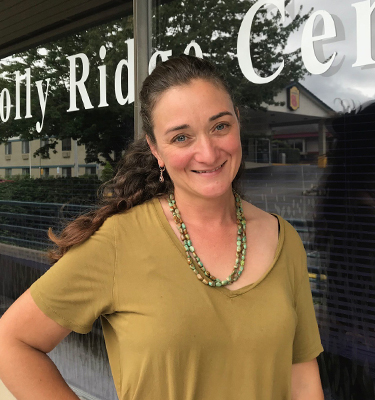
Building an inclusive volunteering community can be stressful, but it is often incredibly rewarding as well! This year, we asked Erica Delma from Holly Ridge Center to share her journey as a grantee of The Arc’s Martin Luther King, Jr. Day of Service project through a letter to herself. She spoke about finding meaningful work for her clients, the partnerships that blossomed because of volunteering, and the spirit of helping others that has lasted long after the events are over.
Dear 2018 Erica,
I know that the last few months since you applied for the MLK grant have been a roller coaster of emotions. As Development Director of Holly Ridge Center, you are responsible for attracting, growing, and stewarding resources to further the important work the Center does in our community. When the opportunity presented itself to apply for funding to develop inclusive volunteer programs, you thought it was a great match for the Center’s focus on inclusivity and finding people with autism meaningful places in the community. When you realized the focus would be on addressing food insecurity, an issue that you have been passionate about for years, you could not have imagined a better fit. And, one day you got the notice – you got the grant!
I want you know that you are joining a group of people and organizations throughout the country who are equally passionate. And, I want you to know that The Arc staff will be there to help you every day to be successful and navigate challenges.
You will get an opportunity to work with multiple community partners that will blossom into deeper relationships. You will add in even more partnerships with Meals on Wheels, the Kitsap Rescue Mission, and other service organizations.
On MLK Day, you will host a very successful volunteer fair at the Marvin Williams Center. Many people will tell you how eager they are to work with you in the future. The volunteers you support will have more opportunities in the community, and they will be eager and excited to do more and help others.
Thank you for your enthusiasm and energy for connecting the dots to promote inclusivity, volunteerism, the spirit of Dr. Martin Luther King Jr., and addressing food insecurity. There will be work nights and even longer days, but all your hard work will pay off!
Sincerely,
2019 Erica
West Virginia, National Disability Advocacy Groups File Complaints Alleging Systemic Disability Discrimination in Kanawha County Schools
/in Press Releases/by The ArcWashington, DC – Local and national disability advocacy organizations have filed three complaints with the West Virginia Department of Education alleging widespread failures by Kanawha County Schools (KCS) to educate children with disabilities, including autism, intellectual or developmental disabilities, mental health concerns, and Attention Deficit Hyperactivity Disorder (ADHD). Specifically, the groups assert that KCS—the public school district serving Charleston, West Virginia’s state capital, and its environs—has failed to provide behavioral and academic supports to students with disabilities and are instead segregating them into separate schools and classrooms, or sending them home because KCS schools will not educate them. The advocates—Disability Rights of West Virginia, Mountain State Justice, The Arc, and the Bazelon Center for Mental Health Law, along with the global law firm Latham & Watkins LLP—allege that KCS has violated federal laws protecting students with disabilities.
“Students with disabilities and behavioral support needs can thrive in school, graduate with diplomas, and transition to successful adulthood provided they receive the appropriate supports to which they are entitled under federal law. It is critical that KCS take responsibility for teaching all of its students, not just some,” said Jeremiah Underhill, Legal Director of Disability Rights of West Virginia.
As described in the complaints, scores of children with disabilities enrolled in KCS have been separated unnecessarily from mainstream classrooms in their schools. Instead, the students are segregated for years in separate classrooms where they interact only with other students with disabilities, and receive an inferior education; placed on “homebound” status where they may only receive a few hours of tutoring each week; or suspended or even expelled from school for behaviors that are caused by their disabilities. The students are not receiving critical behavioral supports that can help them be successful in the general education classroom with their classmates without disabilities.
“It is heartbreaking to see KCS undermine the great potential of students with disabilities by failing to provide necessary supports and, ultimately, removing them from the classroom, causing them to miss vital instructional time and fall farther and farther behind academically and socially,” said Lewis Bossing, Senior Staff Attorney with the Bazelon Center.
Specifically, the complaints allege that KCS is: 1) violating the Individuals with Disabilities Education Act (IDEA) by failing to provide children with disabilities with the special education they need to receive a “free appropriate public education” in the least restrictive environment; and 2) violating the Americans with Disabilities Act (ADA) and Section 504 of the Rehabilitation Act (Section 504) by failing to educate children with disabilities in the most integrated setting appropriate to their needs, and denying them equal educational opportunity.
“We are seeing KCS discipline students with disabilities with months-long homebound placements, out-of-school suspensions, and segregated placements in classrooms that resemble storage facilities rather than places of learning for ‘infractions’ as minor as touching another student with a plastic fork or refusing to get off the playground slide at the end of recess. Students are receiving behavior plans that take the form of rote checklists rather than the individualized guidance documents the IDEA requires to adequately support children to succeed in school,” said Shira Wakschlag, The Arc’s Director of Legal Advocacy & Associate General Counsel.
In 2017, the U.S. Supreme Court held unanimously in Endrew F. v. Douglas County School District RE-1 that the “IDEA demands more.” Specifically, the Court provided a new and more demanding standard for what schools must do to adequately educate students with disabilities, requiring that school districts provide “an educational program reasonably calculated to enable a child to make progress appropriate in light of the child’s circumstances” and provide students with disabilities the opportunity to meet “challenging objectives” with “appropriately ambitious” special education. For virtually all children, this means receiving instruction and services in the general education classroom, with appropriate supports, alongside students without disabilities. In addition, in 1999 in Olmstead v. L.C., the Court held that the ADA prohibits the needless isolation or segregation of people with disabilities. The ADA applies to public schools, which cannot unnecessarily segregate students with disabilities, nor deny them equal opportunities.
“We have long fought for students with disabilities throughout West Virginia to be educated in their neighborhood schools with appropriate services and supports. KCS’s systemic failures to support students with disabilities in the least restrictive, most integrated setting cannot be justified in light of recent and longstanding Supreme Court precedent,” said Lydia Milnes, an attorney with Mountain State Justice. “KCS must do much more to ensure that all its students with disabilities receive the education they need and to which they are entitled.”
“By failing to adhere to the Individuals with Disabilities Education Act and Americans with Disabilities Act, Kanawha County Schools is diminishing the ability of our clients to secure the education to which they are entitled by law,” said Michael Faris, Latham & Watkins partner. “We look forward to ensuring that the law is upheld.”
About Disability Rights of West Virginia
Disability Rights of West Virginia (DRWV) is the federally mandated protection and advocacy system for people with disabilities in West Virginia. DRWV protects and advocates for the human and legal rights of persons with disabilities. To learn more, visit https://www.drofwv.org/.
About Mountain State Justice
Mountain State Justice is a non-profit legal services firm dedicated to redressing entrenched and emerging systemic social, political, and economic imbalances of power for underserved West Virginians, through legal advocacy and community empowerment offered regardless of ability to pay. To learn more, visit https://mountainstatejustice.org/.
About The Arc
The Arc is the largest national community-based organization advocating for and serving people with intellectual and developmental disabilities (IDD) and their families. In partnership with its network of 650 chapters across the country, The Arc works to promote and protect the rights of people with IDD to live, work, and learn in the community free from discrimination. To learn more, visit www.thearc.org.
About The Judge David L. Bazelon Center for Mental Health Law
The Judge David L. Bazelon Center for Mental Health Law is a national legal advocacy organization protecting and advancing the rights of people with mental disabilities. The Center promotes laws and policies that enable adults and children with mental disabilities to live independently in their own homes, schools, and communities, and to enjoy the same opportunities that everyone else does. To learn more, visit www.bazelon.org.
About Latham & Watkins LLP
Latham & Watkins LLP is global law firm with more than 2,700 lawyers located in Asia, Europe, the Middle East, and the United States. For more information, please visit its website at www.lw.com.
The Arc to Host Environmental Risk Reduction Program
/in Press Releases/by The ArcWashington, DC – The Arc is pleased to announce that it will host Project TENDR (Targeting Environmental Neuro-Developmental Risks), a collaborative of leading scientists, health professionals and children’s and environmental advocates that works to disseminate scientific information and raise awareness of the risks pregnant women and children face from chemicals and pollutants that harm brain development, and to eliminate disproportionate exposures to children of color and children in low-income communities.
Project TENDR was established in 2014 to address the unacceptably high-risk children in America face for disorders that affect the brain. Widespread exposures to toxic chemicals in our air, water, food, soil, and consumer products can increase children’s risks for cognitive and behavioral impairment, as well as specific disorders such as autism and ADHD. Although these complex disorders have multiple causes—environmental, genetic, and social—the contribution of toxic chemicals to these disorders can be prevented. In its first five years, the project has developed a first-of-its kind scientific consensus statement which received coverage by the New York Times, CNN, NPR and hundreds of other media outlets; sponsored Congressional briefings; facilitated sign-on letters from scientists and health professionals on federal policy issues; and provided scientific evidence to state legislatures.
“The Arc is honored to host this unique initiative as it carries on our tradition of supporting research and advocacy. Every day, we are learning more about the harmful and lasting effects of environmental exposures on developing brains, many of which contribute to intellectual and developmental disabilities. Investigating the causes, avoiding those that are preventable, and limiting negative effects of conditions that cause intellectual and developmental disabilities will contribute to individual and family quality of life. Sadly, we also know that the service system for people with IDD has never adequately met demand so we must do everything we can to prevent the harmful exposures in the environment that contribute to IDD as well as fight for the supports and services needed by people with disabilities to live a full and inclusive life,” said Peter Berns, CEO, The Arc.
Project TENDR is co-directed by Maureen Swanson, The Arc and Dr. Irva Hertz-Picciotto, a professor at the MIND Institute at UC Davis. It is funded by grants from the John Merck Fund, Ceres Trust, Passport Foundation, the Pediatric Epilepsy Research Foundation, and the National Institute of Environmental Health Sciences, and other foundations.
The Arc advocates for and serves people with intellectual and developmental disabilities (IDD), including Down syndrome, autism, Fetal Alcohol Spectrum Disorders, cerebral palsy and other diagnoses. The Arc has a network of over 600 chapters across the country promoting and protecting the human rights of people with IDD and actively supporting their full inclusion and participation in the community throughout their lifetimes and without regard to diagnosis.
Editor’s Note: The Arc is not an acronym; always refer to us as The Arc, not The ARC and never ARC. The Arc should be considered as a title or a phrase.

